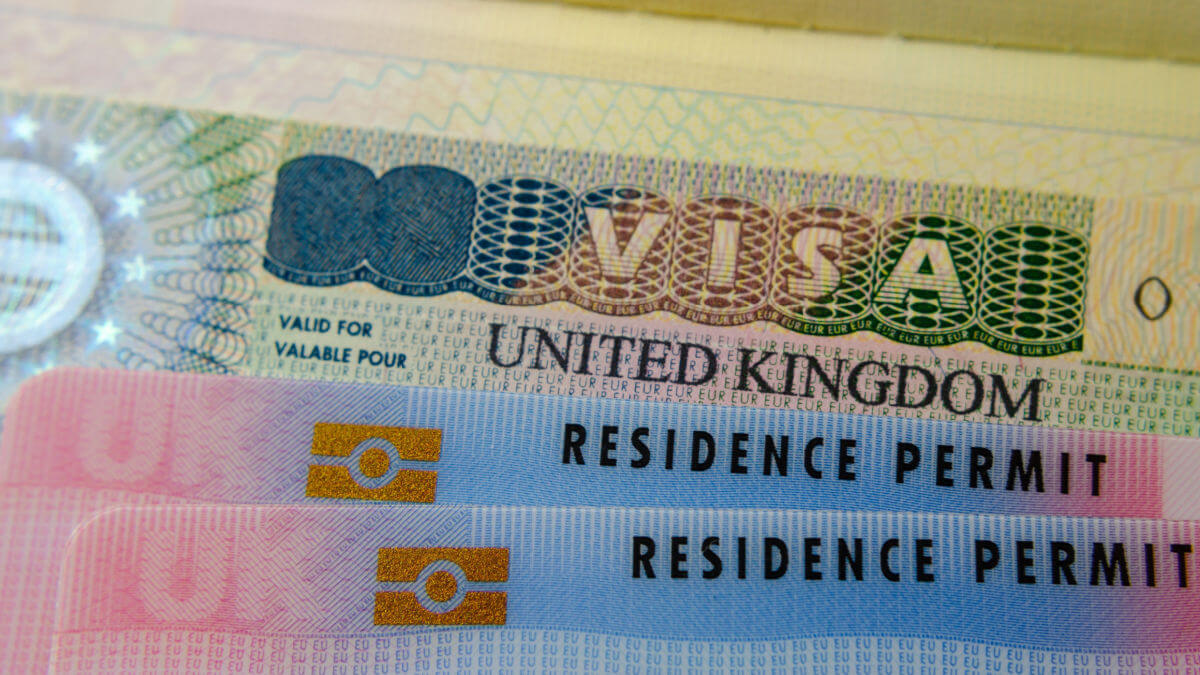Cheapest Universities in the UK for international students
Getting into a university in the United Kingdom has long been an aspiration for international students due to their world-class, top-notch excellence. There’s...

Home to some of the world’s best museums, restaurants, sports teams, and universities, there’s no doubt that moving to the UK to work, study, or just to have an adventure is a goal shared by many.
Whether you’re headed to England, Scotland, Wales, or even Northern Ireland, the UK is known for its gorgeous scenery, urban destinations, and cultured lifestyle.
Relocation can seem like a massive hurdle, but armed with the right information, moving can be a relatively painless process.
This guide will walk you through the step by step requirements of moving to the UK including finding a job and accommodation, opening a bank account, the local cost of living, as well as the UK healthcare system.
We’ll also take a look at smart ways to manage your money when moving to a new country, with Wise.

No matter where you’re from, you’ll need a valid passport to enter the UK. From there, the legal requirements for moving to the UK will vary according to your nationality.
As part of the Commonwealth, Australian citizens can apply for “right of abode” if they have a parent who was born in the UK or if they were a Commonwealth citizen on December 31, 1982 and have continuously remained a Commonwealth citizen since.⁴
When you have the right of abode, this means that you can legally live and work in the UK without any immigration restrictions.
Another way for Australians to move to the UK is under a UK ancestry visa, which is available to citizens of a Commonwealth country. There are a few more requirements⁵ to apply for this visa though, and these are:
Unlike the right of abode, however, the UK ancestry visa expires after 5 years.⁶
The UK ancestry visa costs £516.⁶ You can use Wise to save on currency conversion when paying for your UK ancestry visa from Australia.
Moving to the UK after Brexit will be different. EU citizens living in the UK have their right to reside protected until 30 June 2021.⁷ However, if you’re from the EU (apart from the Republic of Ireland), Iceland, Liechtenstein, Norway or Switzerland, and live in the UK, you’ll need to apply to remain if you intend to stay in the country after 31 December 2020.
The first step is to apply to either the EU Settlement Scheme, or to apply for British Citizenship, depending on your personal situation and preferences. You may need to take action even if you have previously been granted a Permanent Residence document by the UK government.
The UK Government has a helpful online tool which works through what you need to do to remain in the UK as an EU, EEA or Swiss citizen after December 2020. This walks you through the process and options available based on your personal situation.
No matter what your post-Brexit plans may be, it’s a good idea to sign up for email updates from the UK Home Office, to make sure that you get the latest news on Brexit negotiations and their impact on you.
Americans hoping to move to the UK have a bit more of a structured process and will need to obtain a visa. The most common type of visas are work and family visas. If neither applies in your case, unfortunately it will be very difficult to move to the UK.
There are a few different work visas depending on the situation, and you can also apply for different kinds of visas. The UK government has a quick test you can do tosee if you need a visa, and what type of visa you might need.⁸
For instance, when you’ve been offered a skilled job in the UK, you can apply for a “Tier 2” visa. Your employer does need to be a licensed sponsor, and they need to provide you with a valid certificate of sponsorship.⁹
The other requirements for this visa, are:
If you’re a student from the EU, EEA or Switzerland, you can enter the UK without a visa until 31 December 2020. Once you arrive you’ll need to apply for the right to remain in the UK under the EU Settlement Scheme by 31 June 2021.¹⁰
After 1 January 2021, European students can enter the UK without a visa for a visit of up to 6 months.¹¹ Beyond this you’ll need a visa - your options include:
Students from other countries may need to apply for a visa.¹² The options usually available include:
For the most comprehensive information, check what your visa requirements and options are, using the UK government’s visa application tool.

If you’re not sure how far your finances will stretch in the UK, this table¹³ lays out some average costs for common items so you can use them as reference to compare to where you currently live.
| Common items | Cost |
|---|---|
| McDonald’s Combo Meal | £6.00 |
| Pint of beer | £3.60 |
| Dozen eggs | £1.94 |
| Monthly transportation pass | £65.00 |
| Litre of gas | £1.26 |
| New Toyota Corolla | £20,131 |
| Rent one bedroom city apartment | £749.09 |
Banking in the UK is a fairly straightforward process, and many of the banks in the UK are larger international banks. Which means you may not even need to find a new one. If you’re making a permanent move to the UK, one of the most important steps will be opening up a bank account.
In order to fund that bank account or to make payments, you’ll likely need to exchange your home currency into pounds. Doing this through your bank is usually fairly easy, though it’s a good idea to keep a close eye on the exchange rate you’re getting.
Most banks mark up the rate in order to make a bigger profit off of your transaction. And this isn’t something they’ll tell you about up-front. Before you commit to the transfer, you can always find out if your bank is giving you a poor exchange by Googling the rate or by using an online currency converter to compare.
Alternatively, you could open a Wise Borderless multi-currency account, which allows you to pay and get paid in multiple currencies. You can convert your money between the supported currencies for a small fee, and transfer the money to a local account.
Before you open a bank account in the UK, you can also use Wise to send money with transparent fees, at the same exchange rate you find on Google. Making things cheaper and simpler.

EU citizens, and people from the EEA and Switzerland who arrive before 31 December 2020 can apply to remain in the UK under the EU Settlement Scheme.¹⁰ This scheme gives the right to work and means no further visa is needed. If you’re an EU, EEA or Swiss citizen and arrive in the UK for work on or after 1 January 2021, you’ll need a visa. Work visas¹⁴ are open for applications from 1 December 2020 for arrival in 2021.
Sign up for email updates from the UK Home Office, to make sure that you get the latest news on UK visa requirements and how they’re changing with Brexit.
People hoping to come to the UK to work from outside of Europe will usually need a work visa. This is a requirement even if you’re coming on a short contract or volunteering. There are several different long and short term visa types to choose from, depending on the type of job you’re doing - but getting approved for a UK work visa isn’t always easy.
Tough immigration rules mean you’ll usually need to be in a shortage occupation, or be able to prove you’re better qualified than British citizens applying for the same job.
The UK government’s visa application tool is a great place to start if you’re not sure what your visa requirements and options are.
If you’re ready to get started on your job hunt, the following sites can help you check out open positions and begin your applications:

Outside of major cities, the UK’s rental market is actually pretty small - only 20% of the UK population rents.¹⁵ That being said, it's possible to find rentals, especially if you’re willing to live in a bit more of an urban area.
Many newcomers to the UK find themselves in the capital, London, where there tend to be more opportunities for work. However, London is also home to many of the most expensive places to live in the country. To make your money go further when renting in London, consider these great value areas:

The good news is, living in the UK means access to the National Health Service, or NHS. This socialized healthcare system means you can see a doctor at very little or no cost and you’re not required to have personal insurance.
NHS Choices also makes finding a doctor easy. All in all, the system works pretty well for the UK’s residents.

Everywhere in the UK, English is the primary spoken language. If you’re not already fluent, you can use an app like Babbel or Duolingo to get started. Even if you’re a native English speaker, you may find the accents difficult to understand. In that case, the best way to learn is immersion.

One of the easiest ways to feel at home is to get together with friends from your home country. Finding other expats in the UK isn’t hard - there are literally hundreds of groups on Meetup and Facebook dedicated to helping you make friends. Some examples are:
You never know when you’ll need to call for help - learn the UK emergency numbers before you arrive to be on the safe side.
The following table lists some important contacts to have in mind as you make the transition:
| Emergency Services | Emergency contact numbers |
|---|---|
| General Emergency | 999 |
| Police | 999 (112 is also supported) |
| Ambulance | 999 (112 is also supported) |
| Fire | 999 (112 is also supported) |
| NHS Direct | 111 (when you need medical help, but it’s not life threatening) |
| US Embassy | 020 7499 9000 |
| Australian Embassy (emergency) | 020 7379 4334 |
Moving abroad won’t be cheap. But you could cut the costs of living between countries, with great value international payments from Wise.
With Wise - and the Wise multi-currency account - you can send and receive online payments all over the world. Trust Wise if you need to pay bills or receive an income from your home country, even after arriving in the UK. You may even be able to use Wise to pay for your UK visa, to cut the costs of currency exchange.
All currency conversion uses the mid-market exchange rate - the one you’ll see on Google - and just a low, upfront fee. There are no hidden charges or markups, so you’ll see exactly what your payment will cost - and what your recipient will get - before you confirm the transaction.
That’s it! With this information in mind, you’re ready to begin your move to the UK. Rolling fields, beautiful coastline, and lots of fish and chips await. Good luck!
Sources:
All sources checked on October 12, 2020
*Please see terms of use and product availability for your region or visit Wise fees and pricing for the most up to date pricing and fee information.
This publication is provided for general information purposes and does not constitute legal, tax or other professional advice from Wise Payments Limited or its subsidiaries and its affiliates, and it is not intended as a substitute for obtaining advice from a financial advisor or any other professional.
We make no representations, warranties or guarantees, whether expressed or implied, that the content in the publication is accurate, complete or up to date.

Getting into a university in the United Kingdom has long been an aspiration for international students due to their world-class, top-notch excellence. There’s...

When dreaming about higher education, many students have the United Kingdom in mind due to its prestigious universities and world-class academic programs....

Whether you’re commuting to work, planning a weekend getaway, or embarking on a grand adventure, Trainline offers a convenient and hassle-free way to book...

A guide to the residence permit in the UK, including what it is, who is eligible, how to apply and how much it costs.

Your essential guide to importing a car from the US to the UK, covering the costs, documents and procedures to follow.

Read our essential guide for foreigners buying property in the UK. Learn about fees, taxes, where to find property and a step-by-step guide to the process.